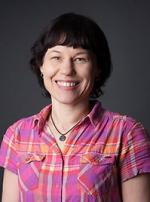Lindkvist, Emilie
Emilie uses agent-based models and other simulation models to understand aspects of sustainability of social-ecological systems. Her first line of research explores the emergence of self-organized governance, and the dynamics of trust among fishers. This is operationalized using an agent-based model informed by qualitative data of small-scale fisheries in Mexico in close collaboration with field experts. The model incorporates individual fishers characteristics, relations and decision-making, the organizational form the fishers, as well as the community level patterns, such as fishers’ characteristics, and their exploitation of the fish resource. The model captures how fishers, organizations and the fish resource co-evolve over time.
A second line of research focuses on finding sustainable strategies for managing renewable resources (e.g., fish stocks), using a learning-by-doing approach and artificial intelligence. In this theoretical experiment, the aim is to achieve a more nuanced understanding of the learning-by-doing process with respect to exploration vs. exploitation, re-evaluating past experiences, evaluating present vs. future outcomes, and threshold dynamics.
Emilie has a background in computer science from KTH Royal Institute of Technology and Uppsala University, as well as mathematics from Stockholm University, Sweden. She started working at the Systems Ecology Department at Stockholm University as a modeller together with Jon Norberg in 2004. She later pursued her PhD in sustainability Sciences at the Stockholm Resilience Centre with Jon Norberg and Maja Schlüter, titles Learning-by-modeling–Novel Computational Approaches for Exploring the Dynamics of Learning and Self-governance in Social-ecological Systems.
Emilie is a member of the Beijer Young Scholars 2016-2018.
She is also funded by US National Science Foundation in the project “Resilience and Adaptive Capacity of Small-Scale Fishing Communities and Coastal Marine Ecosystems to Environmental and Economic Variability” This project is coordinated Maja Schlüter at the SRC, and works with nternational project partners: Heather Leslie (University of Maine) and Xavier Basurto (Duke University). This project spans from February 2016 to February 2019.







